|
|
The University of Shiga Prefecture Repository >
人間看護学部・人間看護学研究科(School of Human Nursing/Graduate School of Human Nursing) >
紀要論文(人間看護学研究) >
02号 >
このアイテムの引用には次の識別子を使用してください:
http://usprepo.office.usp.ac.jp/dspace/handle/11355/46
|
| タイトル: | 糖尿病セルフケア能力の学習による変化 : 家族や地域の人々を巻き込んだ活動への発展までを視野に入れて |
| その他のタイトル: | Changes Caused by Learning of Self-Care Ability for Diabetes Prevention : Putting Into Perspective the Progress Toward Activities Involving Family and Community |
| 著者: | 滝澤, 寛子
原田, 美根子
中野, 小百合
木村, 祥子
草野, 美香
津田, 多佳子
野国, 千恵子
北村, 佳江 |
| キーワード: | 糖尿病
健康教育
地域保健活動
セルフケア能力
自己評価表
diabetes
health education
community health activities
self-care ability
self-rationg scale |
| 発行日: | 2005/03/31 |
| 出版者: | 滋賀県立大学人間看護学部 |
| 抄録: | 背景 地域保健活動における糖尿病予防対策の中に、個別健康教育が導入された。しかし、個別健康教育の課題として、環境をより健康的に整備していく担い手の一人として健康教育受講者を位置づける必要性が指摘されている。このような視点から、家族や地域の人々を巻き込んだ活動への発展までを視野に入れ、糖尿病予防教室を受講した地域住民がセルフケア能力を獲得していく過程を評価する自己評価表を作成した。個別健康教育に集団健康教育を組み合わせ、作成した自己評価表を用いて受講者の学習の進行具合を確認しながら学習支援することで、受講者のセルフケア能力を高めることができると考えた。目的 セルフケア能力獲得過程を組み込んだ自己評価表を用いて健康教育を実施し、家族や地域の人々を巻き込んだ活動への発展までを視野に入れて、受講者の本学習プログラムによる変化を、セルフケア能力、自己管理行動、HbAlc値を指標に検討した。方法 都市部と地方の各1区・町において、個別と集団の学習を組み合わせ、自己評価表結果を個人の学習援助に役立てる健康教育を実施した。教室受講者40名(都市部18名、地方12名)に、教室受講前、開始後4か月日に調査を実施した。都市部では、教室非受講者73名を対照として、教室開始前と1年後に、受講者と同時に調査を実施した。調査内容は、自己評価表によるセルフケア能力、糖尿病自己管理行動尺度、血糖値、HbAlc値とした。教室受講者の受講前後、都市部の受講者と非受講者各々の教室1年後の変化を平均値を用いて比較した。また、自己評価表の下位尺度得点を用い学習の発展過程をパス解析を用いて調べた。結果 教室受講者の指導4か月目は、自己評価表得点、自己管理行動得点、HbAlc値ともに、受講前に比べ、有意に改善していた(t検定:p<0.01)。教室受講者の1年後の、自己評価表得点、自己管理行動得点は、受講前に比べ高かった(t検定:p<0.01)が、HbAlc値の改善は認めなかった。教室非受講者の1年後の、自己評価表得点、自己管理行動得点、HbAlc値ともに、受講前に比べ、変化は認めなかった。パス解析からは、教室受講者では、<関心>→<病態理解>→<食事・運動の改善点と解決策>→<実行と効果の確認・修正>→<周囲への働きかけ>の学習の流れが示された。一方、非受講者の1年後では、<病態理解>→<食事・運動の改善点と解決策>→<実行と効果の確認・修正>となった。結論 教室受講者は、自分の健康課題を入り口に、自分の健康課題を解決していく力を高めながら、家族や地域の人々への生活にも関心を向け一緒に健康的な生活を送るよう働きかけていくことが示唆された。教室受講者を環境をより健康的に整備していく担い手として位置づけ、健康教育を立案していく必要性と、受講者の変化を維持・向上させていくよう、地域活動の中に取り込む仕組みづくりの大切さを示唆するものと考える。
Background Individual health education was introduced as part of the diabetes prevention measures for community health activity. However, it was pointed out that one of the problems of individual health education is the necessity to position participants in the program as one of the leaders, who adjust the environment in a healthier way. Based on these conditions, we created a selfrating scale to assess and support the learning processes for self-care ability for diabetes prevention, keeping in mind the need to develop activities involving the both the family and the community. We believed that we could enhance the self-care ability of participants by combining individual health education with group health education. We also believed that we could support their learning while verifying their progress by using this self-rating scale. Purpose We carried out a health education program that included a self-rating scale and examined participants' learning progress through this program putting into perspective the progress toward activities involving family and community. Methods Individual health education combined with group health education was implemented in respective cities and towns in urban and rural areas, using the self-rating scale as an aid to assess and monitor individual learning. Surveys were conducted for 40 participants in the program, checking the results before participation in the program and four months after start of the program. Inurbanareas, surveys were simultaneously conducted for participants and 73 individuals who did not undergo the education program (non-participants). Surveys were given again one year later. The surveys assessed the following areas: self-care ability according to the self-rating scale, a diabetes self-care behavior measure, blood glucose level, HbAlc levels. Mean values of each item were calculated. Mean values were used to compare differences in participants before and after education, and in urban areas, between participants and non-participants one year after the program. In addition, the lower scores on the self-rating scale were used to examine learning progress by path analysis. Results There was a significant improvement in the participants' scores on the self-rating scale, self-care behavior and HbAlc levels at after 4 months (t-test: p<0.01) compared to before the education program. Participants' scores on the self-rating scale, and self-care behavior at 1 year were higher than the scores before the education program (t-test: p<0.01), but the HbAlc values did not improve. Scores of non-participants on the self-rating scale, self-care behavior measure and HbAlc values showed no changes after 1 year compared to the baseline. The path analysis revealed the following learning procedure among participants: "to direct interest toward self-care" → "to understand the symptoms of diabetes" → "to explore and determine how to improve current food intake and exercise patterns" → "to implement, monitor, and improve one's self-care" → "to approach families/community." On the other end, non-participants showed the following learning process after 1 year: "to understand the symptoms of diabetes" → "to explore and determine how to improve current food intake and exercise patterns" → "to implement, monitor, and improve one's self-care". Conclusion This survey suggests that people who participate in a health education program relating to their own health problems from the beginning can improve their ability to resolve their problems. And also they can take an interest in the lifestyles of their family and community and work to lead a healthy lifestyle together. Due to increased motivation and heightened health consciousness among the subjects of this survey, we believe that there are limits to the extent to which these results can be generalized. However, this survey shows the necessity of planning health education which places the emphasis on self-care and education in order to promote a healthier society. In addition, this survey shows the importance of creating a structure in which participants can work within the community to maintain and improve their self-care ability. |
| NII JaLC DOI: | info:doi/10.24795/nk002_021-033 |
| URI: | http://usprepo.office.usp.ac.jp/dspace/handle/11355/46 |
| 出現コレクション: | 02号
|
このリポジトリに保管されているアイテムは、他に指定されている場合を除き、著作権により保護されています。
|





